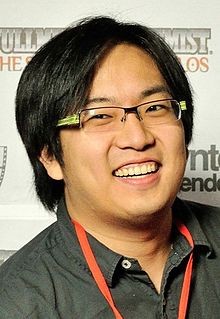A Quote by Robert Hass
It seems like every ten years there's a book that says that poetry used to be popular, and now it's not, but we really have no way of knowing, in terms of relative size of audience and other things, exactly who readers were.
Related Quotes
Poetry has an indirect way of hinting at things. Poetry is feminine. Prose is masculine. Prose, the very structure of it, is logical; poetry is basically illogical. Prose has to be clear-cut; poetry has to be vague - that's its beauty, its quality. Prose simply says what it says; poetry says many things. Prose is needed in the day-to-day world, in the marketplace. But whenever something of the heart has to be said, prose is always found inadequate - one has to fall back to poetry.
As a writer, one of the things we all learned from the movies was a kind of compression that didn't exist before people were used to watching films. For instance, if you wanted to write a flashback in a novel, you once had to really contextualize it a lot, to set it up. Now, readers know exactly what you're doing. Close-ups, too.
When Emily Dickinson's poems were published in the 1890s, they were a best-seller; the first book of her poems went through eleven editions of a print run of about 400. So the first print run out of Boston for a first book of poems was 400 for a country that had fifty million people in it. Now a first print run for a first book is maybe 2,000? So that's a five-time increase in the expectation of readership. Probably the audience is almost exactly the same size as it was in 1900, if you just took that one example.
Food trends don't just drive the obvious things, like cupcakes or cronuts, but something as elemental as your daily cup of coffee. The way you have that coffee now is probably very different from the way you had it ten years ago, and it'll probably be very different in ten years. That has a huge impact, culturally and economically.
Poems very seldom consist of poetry and nothing else; and pleasure can be derived also from their other ingredients. I am convinced that most readers, when they think they are admiring poetry, are deceived by inability to analyse their sensations, and that they are really admiring, not the poetry of the passage before them, but something else in it, which they like better than poetry.
I'm not saying I have to write a book that's ten times better than my counterparts, but I do think that I have to concentrate my efforts on writing something that will really engage people's humanity and will tie readers to my characters regardless of race. I have to prove that I can connect with a wider audience.





































